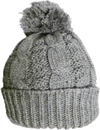Penn-skañv ac’hanout? Es-tu tête en l’air? Is your head in the clouds?
Recently I came across the French expression (être) tête en l’air (‘(to be) head in the air’) which is given as the French equivalent of the Breton expression penn-skañv (‘light head’). I hadn’t seen it before and wasn’t quite sure from it meant. From the context I thought it meant something like forgetful. According to Reverso it means scatterbrained, and according to this discussion, it also means absent-minded or distracted.
An equivalent English idiom is to have one’s head in the clouds, which is also used in French – avoir la tête dans les nuages. Do you know any similar idioms in English, French or other languages?
The Welsh expression pen-ysgafn, which is a literal translation of the Breton expression, but has a related different meaning – ‘light headed’. Forgetful is anghofus in Welsh.
